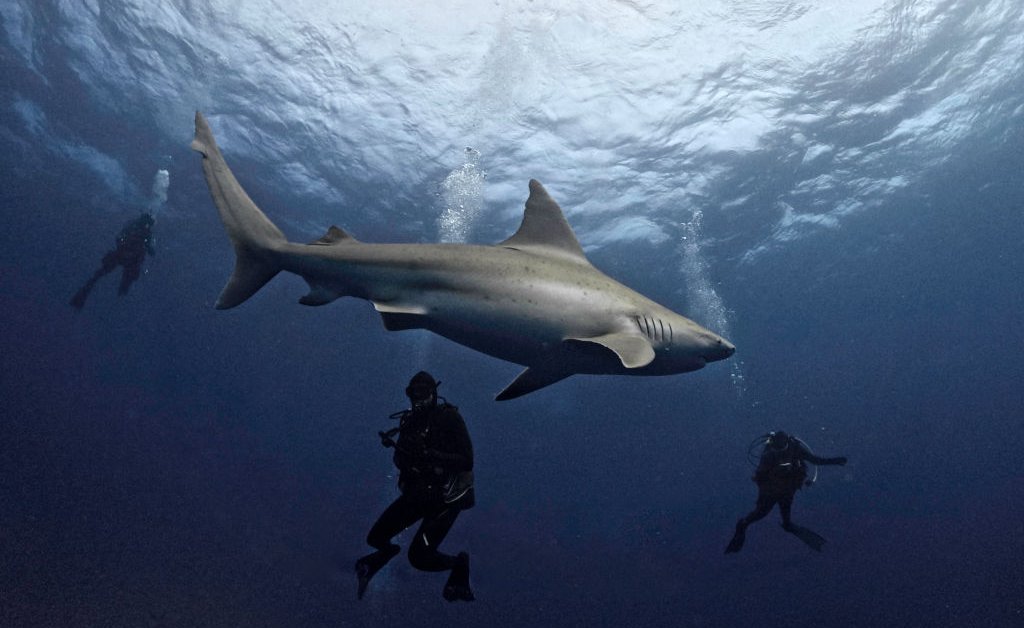The Jaws Effect: A Look At The Film's Long-Term Consequences For Marine Life

Welcome to your ultimate source for breaking news, trending updates, and in-depth stories from around the world. Whether it's politics, technology, entertainment, sports, or lifestyle, we bring you real-time updates that keep you informed and ahead of the curve.
Our team works tirelessly to ensure you never miss a moment. From the latest developments in global events to the most talked-about topics on social media, our news platform is designed to deliver accurate and timely information, all in one place.
Stay in the know and join thousands of readers who trust us for reliable, up-to-date content. Explore our expertly curated articles and dive deeper into the stories that matter to you. Visit Best Website now and be part of the conversation. Don't miss out on the headlines that shape our world!
Table of Contents
The Jaws Effect: How a Blockbuster Film Continues to Impact Our Perception of Sharks
Steven Spielberg's 1975 thriller, Jaws, remains a cinematic masterpiece. Its gripping narrative and iconic score cemented its place in pop culture history. However, the film's legacy extends beyond the silver screen, leaving a lasting – and largely negative – impact on the public perception of sharks and, consequently, marine conservation efforts. This article explores the enduring "Jaws Effect," examining its long-term consequences for shark populations and the ongoing battle to mitigate its harmful influence.
The Rise of Fear and Misunderstanding
Jaws painted a terrifying picture of sharks as mindless, man-eating killing machines. While great white sharks are apex predators capable of inflicting serious harm, the film's portrayal dramatically exaggerated their inherent danger to humans. This cinematic portrayal fueled a global wave of fear and misunderstanding, leading to widespread shark culling and a dramatic decline in populations worldwide. The film's impact wasn't just limited to immediate reactions; it fostered a long-term narrative of sharks as inherently villainous creatures.
The Numbers Don't Lie: Declining Shark Populations
The consequences of this fear are stark. Since the release of Jaws, many shark species have experienced significant population declines. Organizations like the International Union for Conservation of Nature (IUCN) highlight the precarious state of many shark populations, attributing the decline to factors including overfishing, habitat destruction, and the very real fear fueled by films like Jaws. The truth is far more nuanced: shark attacks are exceedingly rare, with far more humans harming sharks than vice versa.
Beyond the Beach: The Economic Impact
The "Jaws Effect" doesn't just affect shark populations; it also impacts coastal economies reliant on tourism and fishing. While some areas may benefit from the increased interest in shark-themed tourism (e.g., cage diving), the pervasive negative image of sharks can deter tourists and damage the reputation of coastal communities. This economic ripple effect further underlines the importance of correcting the misconceptions fostered by the film.
Shifting Perceptions: A Path Towards Conservation
While Jaws undeniably had a significant negative impact, the ensuing decades have seen a growing movement to counter its narrative. Increased scientific understanding of shark behavior, coupled with educational initiatives and conservation efforts, is slowly changing public perception. Documentaries like Planet Earth II and initiatives like Shark Week showcase the vital role sharks play in maintaining healthy ocean ecosystems.
Here's what we can do to mitigate the negative impacts of the "Jaws Effect":
- Support responsible shark tourism: Choose operators committed to ethical practices and shark conservation.
- Educate yourself and others: Learn about the true nature of sharks and their importance to ocean health.
- Support shark conservation organizations: Donate to or volunteer with organizations working to protect shark populations.
- Advocate for stricter fishing regulations: Support policies that limit overfishing and protect shark habitats.
A Legacy of Fear, A Future of Hope
The "Jaws Effect" serves as a potent reminder of the power of media to shape public opinion and influence real-world consequences. While the film's legacy is undeniably intertwined with fear, it also provides an opportunity to reflect on our relationship with the ocean and its inhabitants. By promoting responsible shark tourism, supporting conservation efforts, and fostering a more accurate understanding of these magnificent creatures, we can strive to create a future where sharks are valued, protected, and celebrated for their vital role in maintaining a healthy planet. The fight to overcome the long-term consequences of the Jaws Effect is ongoing, but with continued education and dedication, a more balanced and accurate perspective can prevail.

Thank you for visiting our website, your trusted source for the latest updates and in-depth coverage on The Jaws Effect: A Look At The Film's Long-Term Consequences For Marine Life. We're committed to keeping you informed with timely and accurate information to meet your curiosity and needs.
If you have any questions, suggestions, or feedback, we'd love to hear from you. Your insights are valuable to us and help us improve to serve you better. Feel free to reach out through our contact page.
Don't forget to bookmark our website and check back regularly for the latest headlines and trending topics. See you next time, and thank you for being part of our growing community!
Featured Posts
-
 Climate Change And Energy Key Policy Debates In Virginias Gubernatorial Race
Jun 20, 2025
Climate Change And Energy Key Policy Debates In Virginias Gubernatorial Race
Jun 20, 2025 -
 Aaron Judges Slump And The Yankees Struggles How Stats Reveal Their Playoff Chances
Jun 20, 2025
Aaron Judges Slump And The Yankees Struggles How Stats Reveal Their Playoff Chances
Jun 20, 2025 -
 North Koreas Missile Launches South Korea Confirms Over A Dozen Rockets Fired
Jun 20, 2025
North Koreas Missile Launches South Korea Confirms Over A Dozen Rockets Fired
Jun 20, 2025 -
 Clean Energy Investments How Virginia Is Leading The Way For America
Jun 20, 2025
Clean Energy Investments How Virginia Is Leading The Way For America
Jun 20, 2025 -
 James Woods Dramatic Walk Off Home Run Propels Nationals To Victory
Jun 20, 2025
James Woods Dramatic Walk Off Home Run Propels Nationals To Victory
Jun 20, 2025
